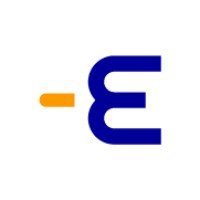Finland participates in the European value chain for the hydrogen economy
The Commission’s decision is based on the first IPCEI Communication in the hydrogen sector under the EU State aid rules.

The European Commission approved up to € 5.4 billion of public support by fifteen Member States for projects to boost clean hydrogen production and develop new uses of hydrogen.
This public support is also expected to generate private investments of EUR 8.8 billion. Finland is one of the Member States participating in the project.
“We will need a lot more clean electricity production as the electrification of industry proceeds and transport becomes cleaner. Hydrogen will play an important role in this. For a long time now, Finland has determinately moved towards cleaner energy solutions and new business opportunities by investing in the hydrogen economy. Together with other EU countries, we will become a stronger player in the clean hydrogen market,” says Minister of Economic Affairs Mika Lintilä.
The Commission aims to produce 10 million tonnes of clean hydrogen by 2030. The objective of the approved projects is to generate cross-border cooperation between companies in the Member States. Cooperation is needed for Europe to become a leading player in producing and exploitingtion of hydrogen at the industrial level.
One Finnish company, Neste Corporation, is included in the first IPCEI package on the hydrogen economy. The approved Neste projects will develop solutions for producing and utilising clean hydrogen in the Neste refinery processes.
In Finland, the final funding decision will be made by Business Finland in autumn 2022.
The 41 projects now approved by the Commission involve 35 companies, some of which are small and medium-sized enterprises and start-ups. The extensive cooperation includes universities and research institutes, too. The projects are expected to have significant multiplier effects across Europe.
In Finland, projects related to the value chain for the hydrogen economy are part of the Sustainable Growth Programme for Finland, funded through the EU’s Recovery and Resilience Facility. The projects support the government’s objective to achieve a carbon-neutral Finland by 2035.
In accordance with Finland’s Sustainable Growth Programme, funding will be allocated to investments in the hydrogen value chain, where hydrogen will be used by industry, transport or any other new products and solutions based on the utilisation of carbon dioxide. Above all, the hydrogen production in the projects will be based on using low-carbon electricity. Business Finland has organised two application rounds under the IPCEI process in the hydrogen economy, so at the end of the year, the Commission is likely to approve more projects submitted by Finnish companies.
The funded projects must fully support the climate criteria defined in the EU’s Recovery and Resilience Facility (RRF). Projects must also comply with the “do no significant harm” principle (DNSH), which means that investments must not significantly harm environmental goals.
IPCEI is an abbreviation for Important Project of Common European Interest. IPCEIs are subject to separate, less stringent State aid rules which allow States to support companies more flexibly than normal.
